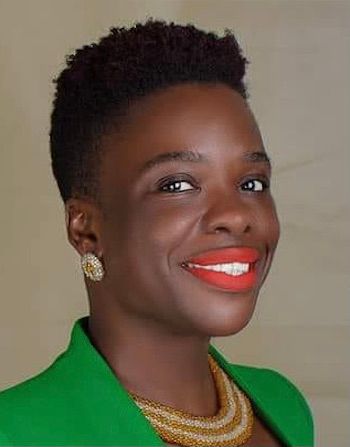Ariana Oluwole

Summary: Ariana Oluwole used her own savings to start Narnia Day Care, one of Sierra Leone’s first day care facilities for children, focusing on high-quality early child-care education. Oluwole’s financial challenges are significant, but she’s determined to bring positive change to her community.
Profile: Ariana Oluwole believes in the power of all-inclusive education as a tool for nation building and development. She has pioneered several ground-breaking educational and community development projects in Sierra Leone, primarily Narnia Day Care. Participating in the Child and Adolescent Mental Health Unit, Sierra Leone Psychiatric Teaching Hospital, and the Early Learning Centres for Children of Market Women and Traders, Oluwole’s passion has always been to help prepare young minds at one of the most critical learning periods in their lives. She seeks to equip children with the knowledge, skills, values, and confidence necessary to successfully adapt to an increasingly complex world. She has accomplished this in numerous ways, aspiring to meet children’s needs before and after birth with a holistic approach.
With an academic background in Biological Sciences, Oluwole became a mother in 2012 and faced challenges in finding a day care that would provide her son with the spiritual, physical, and intellectual care he needed. She also had to deal with balancing work with motherhood.
The following year, Oluwole turned her problem into a solution by starting Narnia Day Care. Her one aim was to make Narnia the answer for working and poor families in Freetown. But it didn’t stop there; Oluwole later went on to acquire a diploma in early learning. Since then, she has made real her passion for improving children’s lives through Narnia.
Supported by volunteers but funded almost exclusively by Oluwole, Narnia Day Care focuses on children up to three years old. It serves at least 50 children per day and continues to expand, so far having taken in over 900 children.
Oluwole is not wealthy, and funding the Day Care is continually difficult. “I established the Centre,” she says, “using my own resources and funds from small businesses I have. In Sierra Leone, threats of poverty and employment stand at 3.6 percent and responding to it is challenging.”
Shortly after establishing Narnia, Oluwole came to the realization that she could not run the project by herself, and so she invited her mother out of retirement to help her out. She also decided to bring people on board who wanted to learn. This developed into an internship programme for young women in her community who wanted to be more engaged but lacked the opportunity or proper motivation to do so. Oluwole chose to work with these women because she realised that though they were brilliant and had a lot to offer, they were also dependent on handouts from family or would-be suitors, a financial insecurity that threatened their full potential. So, Oluwole provided them with the opportunity to get trained in early childhood education and personal development, and in turn work with the children.
“All the 21 women in the staff came from that programme,” says Oluwole, “and it’s a thing that Narnia continues to do.”
Running a day care in Sierra Leone has its own risks and challenges. The business didn’t pick up immediately; nobody wanted to come in. Oluwole would visit community centres and hospitals and also talk to parents, but they preferred to stay home with their children. She attributes this to tradition: When a young woman who’s not even 30 and has only one child starts a child-care centre, people don’t trust her capabilities. Then, when the Ebola crisis happened in 2014, she had to close down the spot and lost thousands of dollars that she had spent to lease her space.
Oluwole’s vision is to create a society prioritising the needs and potential of women and children by providing support and ensuring that they have opportunities to be the influencers of social change and as a result to build a better nation. She has offered herself to the service of her country despite the challenges she has faced, coupled with a lack of ample funds.
“For me,” says Oluwole, “this is a calling, and I have witnessed how the Centre transformed the local community and remains a beacon of hope for the future of the children.”
